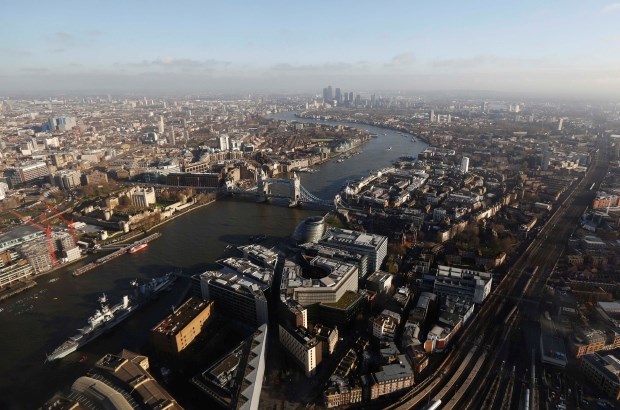Britain’s Daily Mail, one of the more trashy tabloids in a country devoted to rags of that sort, is slamming North Saanich as a “characterless backwater.”
What led to this trash talking, more of which in a moment, was the decision by Prince Harry and Meghan Markle to begin a new life on Vancouver Island. Now I’m not sure that decision still holds — there’s been talk they might prefer Hollywood, a genuinely characterless backwater.
But apparently, the thought of losing what it calls “one of the world’s glamorous couples” was more than the paper could stomach.
Hence we get this: the “relatively young couple seem anxious to escape the restrictions of the UK monarchy … so picking … underpopulated Vancouver Island, with fir trees in every direction, freezing winters and a brief six-week summer might seem understandable … in reality, it’s just plain weird. Instead of Lake Como they’ve got a rocky beach with grey skies overhead ... Have we Brits really upset the Duke and Duchess of Sussex so much they prefer the hum drum [sic] existence of downtown Victoria, with its limited choice of fine dining and trendy cafés?”
And: “If Canada is so fabulous, how come so many famous Canadians live elsewhere?”
Then again: “What cuisine has Canada given the world — apart from maple syrup, bacon and a disgusting dish called poutine, which consists of cheese curds, chips and brown sauce.”
Plus “The average age [Canadians] start drinking is 13 and there’s a huge alcohol problem — maybe it’s the lack of things to do.”
Actually, the country with a “huge alcohol problem” is Britain, where the locals down 20 per cent more per capita than we do.
So let’s turn this around. First off, I’m fairly confident the ex-royal couple fled Britain to get away from outfits such as the Daily Mail, famous for scantily clad “models” and bare-faced rumour-mongering.
As well, if Britain is so fabulous, how come so many Brits live abroad? According to the 2016 census, a third of Canadians list their ethnic origin as English or Scottish.
And sliming weather on Vancouver Island when you’re writing for a newspaper based in England, home to one of the dreariest climates on the planet, takes nerve. The U.K. has been blasted with unprecedented gale-force winds, torrential rain and flooding in recent weeks.
But let’s get to the heart of the matter. I assume the author of this hit piece, Janet Street-Porter, lives in London, where the paper is published. Though in passing, she confesses to having spent two weeks once upon a time on Gabriola Island, where “pooing in a composting toilet has scarred me for life.”
In any event, traffic in London is now so hellish, you have to pay a $20 fee just to drive into town. There are indeed fine dining establishments and trendy cafés, but you would need a bank loan to eat at one.
And don’t think of buying a house — average price $1.4 million for an ancient pile built in the 1800s, with lousy wiring and a kitchen the size of a broom closet. Even a one-bedroom apartment can set you back $3,000 a month in rent.
Mangy foxes roam the streets and even mangier pigeons decorate your parked car with droppings. That is, if you can find somewhere to park it in the first place.
By general agreement, London’s underground — the Tube — is dirty, smelly and crowded, perhaps the worst of its kind in Europe.
And the city’s crime rate, at 96 offences per thousand residents, is 10 times the level on Vancouver Island, and rising rapidly.
In short, life in a “characterless backwater” such as North Saanich is heaven compared with eking out an existence in the concrete jungle Street-Porter calls home.
However, if she cares to pay us a visit, I’m sure we can find her a place with an indoor toilet, something you still can’t count on in that Sceptred Isle.
- - -
To comment on this article, send a letter to the editor.
• Email: [email protected]
• Mail: Letters to the editor, Times Colonist, 2621 Douglas St., Victoria, B.C. V8T 4M2.
Letters should be no longer than 250 words and may be edited for length, legality or clarity. Include your full name, address and telephone number. Copyright of letters or other material accepted for publication remains with the author, but the publisher and its licensees may freely reproduce them in print, electronic and other forms.



